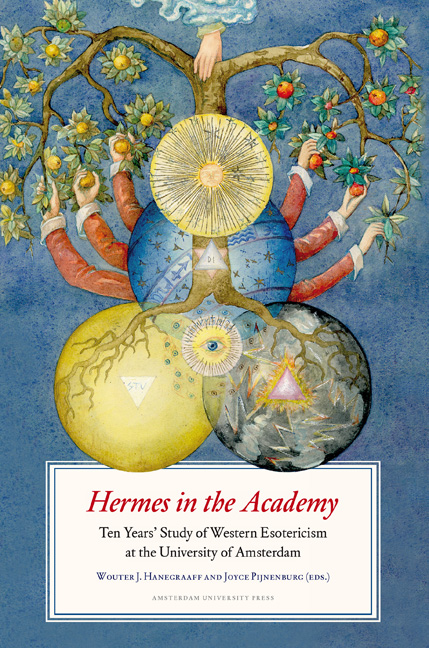Seven Epistemological Theses on Esotericism: Upon the Occasion of the 10th Anniversary of the Amsterdam Chair
Published online by Cambridge University Press: 20 January 2021
Summary
The wholly new dynamics that has emerged in research of European esotericism over the past decade – new methodological approaches, new questions, new research institutions, a new agility and visibility of academic concern with esotericism generally – all of this has happened largely because of the Amsterdam Chair for “History of Hermetic Philosophy and Related Currents.” During the short period of its existence it became one of the first and most important addresses of the European study of esotericism. No one who nowadays investigates modern European esotericism, no one who wishes to actively participate in this academic discourse, will be able to ignore GHF. It has become a capital on the European map of esotericism research.
Conclusiones
1. Esotericism cannot be objectively defined, but is the fluid product of discourses and interpretations.
2. Esotericism can be understood as an epistemological phenomenon, and can therefore be described from the perspectives of history, sociology and theory of science.
3. Esotericism is guided by a supreme optimism and universalism concerning knowledge.
4. Esoteric knowledge does not stand in an oppositional but in a dialectical relation to exoteric (ecclesiastical, academic, normative, etc.) knowledge.
5. The greatest tension in the dialectics of esoteric epistemology is the one between knowledge and belief.
6. The greatest irritation of esotericism consists in the transgression of the boundaries of rational and empirical knowledge towards myth and literature.
7. Esotericism is an integral part of the European history of knowledge.
Ad. 1. From esotericism as substance to esotericism as construct: The achievement of recent esotericism research is demonstrated in symptomatic fashion by the new way of answering the very question of the concept of esotericism. In recent years, a kind of Copernican turn has occurred: from a substantive concept of esotericism, i.e. an object that can be defined by objective criteria, to esotericism as a concept of discursive negotiation.
1.1. Classic historical ways of presentation, leading to important master narratives with titles such as “Major Trends of Jewish Mysticism” or “History of Esoteric Currents,” serve to confirm esotericism – precisely in its historical differentiation – as an autonomous and largely closed chapter within the history of religion. Systematic researches of specific esoteric concepts of nature, man, soul, history, language, and so on, are likewise built upon definable specifics of esotericism.
- Type
- Chapter
- Information
- Hermes in the Academy , pp. 143 - 148Publisher: Amsterdam University PressPrint publication year: 2009



